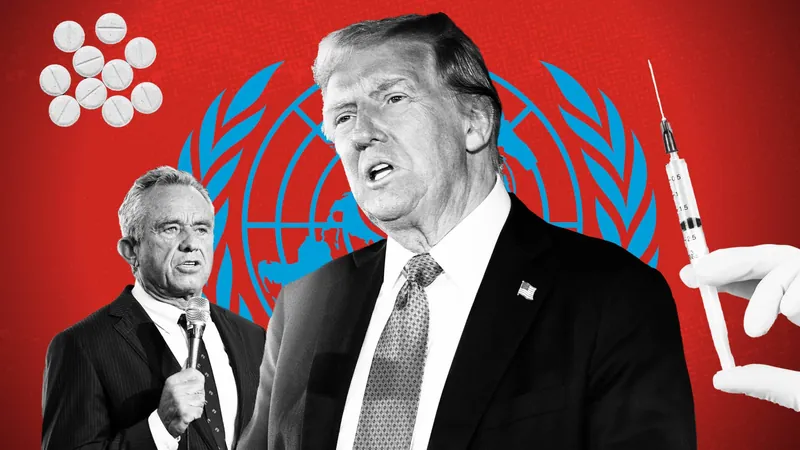
The Implications of a Potential Second Trump Term on Global Health Leadership
2025-01-12
Author: Li
The Implications of a Potential Second Trump Term on Global Health Leadership
As the prospect of a second term for former President Donald Trump draws closer, concerns are mounting regarding the potential ramifications for U.S. leadership in global health initiatives. If Trump returns to the Oval Office, many experts worry that his administration's past attitudes toward international cooperation and health regulations could significantly undermine the United States' position on the world stage.
During his first term, Trump’s administration was characterized by a tendency to prioritize national interests over multilateral agreements, leading to withdrawals from crucial global health organizations and reduced funding for initiatives aimed at combating infectious diseases worldwide. This approach not only strained relationships with key allies but also jeopardized collective efforts to address urgent global health challenges, such as pandemics, climate change, and healthcare access.
One of the most significant consequences of a second Trump presidency could be a further decline in U.S. participation in organizations like the World Health Organization (WHO). Trump's previous criticisms of the WHO—blaming it for mishandling the COVID-19 pandemic and accusing it of being overly lenient with China—set a precedent that could lead to diminished U.S. influence in health policy formulation and implementation across the globe.
Moreover, experts argue that Trump’s administration might also push for deregulation in the health sector, potentially compromising the safety and efficacy of health products, especially vaccines. In an era where vaccine diplomacy is becoming crucial for international relations, a lack of U.S. leadership could create a void that rival nations may exploit to expand their influence, particularly in regions heavily affected by health crises.
Additionally, a second Trump term could result in a stark reduction in funding for global health initiatives. The reallocation of resources to prioritize domestic issues over international health threats could exacerbate global health disparities, making it more challenging to respond to future pandemics and other public health emergencies.
In conclusion, the potential reelection of Donald Trump raises critical questions about the future of U.S. leadership in global health. As the world faces unprecedented health challenges, it is essential for the United States to maintain its role as a decisive leader in international health efforts. Failure to do so could not only diminish America’s standing globally but also jeopardize global health security for generations to come.
 Brasil (PT)
Brasil (PT)
 Canada (EN)
Canada (EN)
 Chile (ES)
Chile (ES)
 Česko (CS)
Česko (CS)
 대한민국 (KO)
대한민국 (KO)
 España (ES)
España (ES)
 France (FR)
France (FR)
 Hong Kong (EN)
Hong Kong (EN)
 Italia (IT)
Italia (IT)
 日本 (JA)
日本 (JA)
 Magyarország (HU)
Magyarország (HU)
 Norge (NO)
Norge (NO)
 Polska (PL)
Polska (PL)
 Schweiz (DE)
Schweiz (DE)
 Singapore (EN)
Singapore (EN)
 Sverige (SV)
Sverige (SV)
 Suomi (FI)
Suomi (FI)
 Türkiye (TR)
Türkiye (TR)
 الإمارات العربية المتحدة (AR)
الإمارات العربية المتحدة (AR)